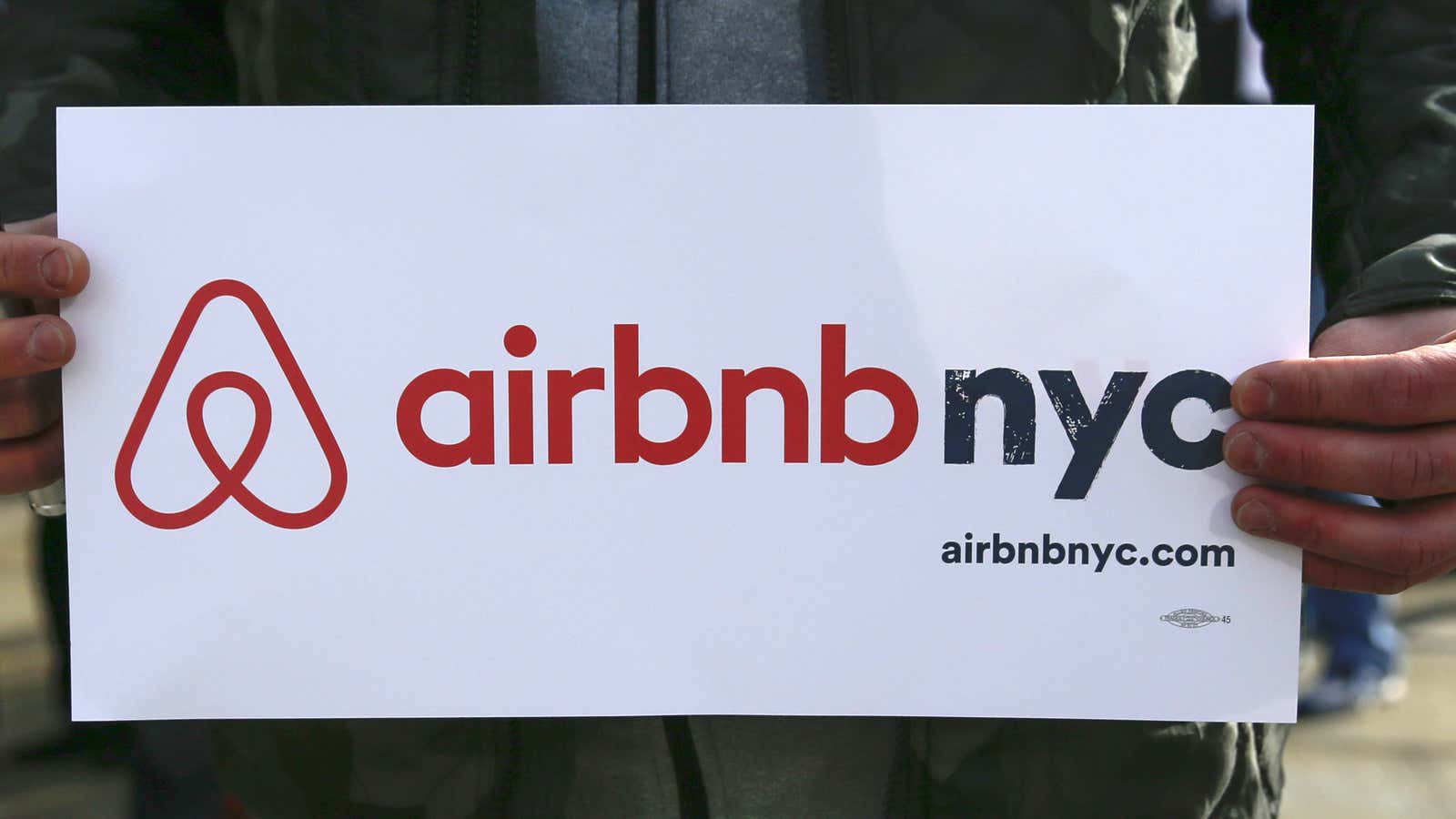Last November, Airbnb was forced to do some soul-searching. In a few short weeks, the company had angered most of San Francisco, defeated an existential threat to business in the same city, declared its platform “a movement,” and announced plans for grassroots lobbying across America. Airbnb’s campaign for home sharing was working, but at the price of its genial, responsible, good-neighbor image.
Airbnb has been trying to reclaim the nice-guy role ever since. On Nov. 11, it introduced the Airbnb Community Compact, a list of “core principles” for working with cities. In early December, the company released new data on its home rentals in New York City, albeit it in a guarded and convoluted way. And now, in another apparent bid to be seen as cooperative and transparent, Airbnb is admitting it tidied up that data before making it public.
“Following the announcement of our Community Compact last November, we removed approximately 1,500 listings from our platform in New York City that were controlled by commercial operators and did not reflect Airbnb’s vision for our community,” Josh Meltzer, Airbnb’s New York director of public policy, wrote in a letter to state legislators on Wednesday (Feb. 24). The cleanup affected 622 hosts, of which 375 (about 60%) had two listings or more. Airbnb says that caused the fraction of revenue earned by hosts with multiple listings to drop 3%.
Airbnb’s letter effectively confirms what two researchers alleged earlier this month: that the company manipulated its data before presenting it to the public. In their report, “How Airbnb’s data hid the facts in New York City,” the researchers claimed that Airbnb carried out a “one-time targeted purge of over 1,000 listings” in November to decrease its percentage of multi-listing hosts (also known as “commercial operators”) and ”paint a more attractive picture of its business.”
Commercial operators are a sore point for Airbnb everywhere, but particularly in New York. In October 2014, a report from the New York attorney general condemned Airbnb for a thriving community of commercial users (defined in that case as hosts with three or more listings) that offered 36% of listings and collected 37% of host revenue. The top 12 of those hosts alone took in $24.2 million, or 5% of revenue, from January 2010 to January 2014.
Findings like that are no good for Airbnb, which has tried to make nice with cities by touting the “economic lifeline” it offers to everyday residents. (In New York, Airbnb says the median host earns just over $5,000 a year from renting on its platform.) Neither are accusations that its gestures of transparency are all a front, a calculated charm offensive to win over local officials.
Which might explain why Airbnb is, in a sense, coming clean now, and admitting some housekeeping went on before releasing data to New York City. For Airbnb’s home rental model to work in the long term, it needs the trust and cooperation of hosts and travelers, but also of cities and local politicians worldwide.
Getting New York to buy in would be a good start.
